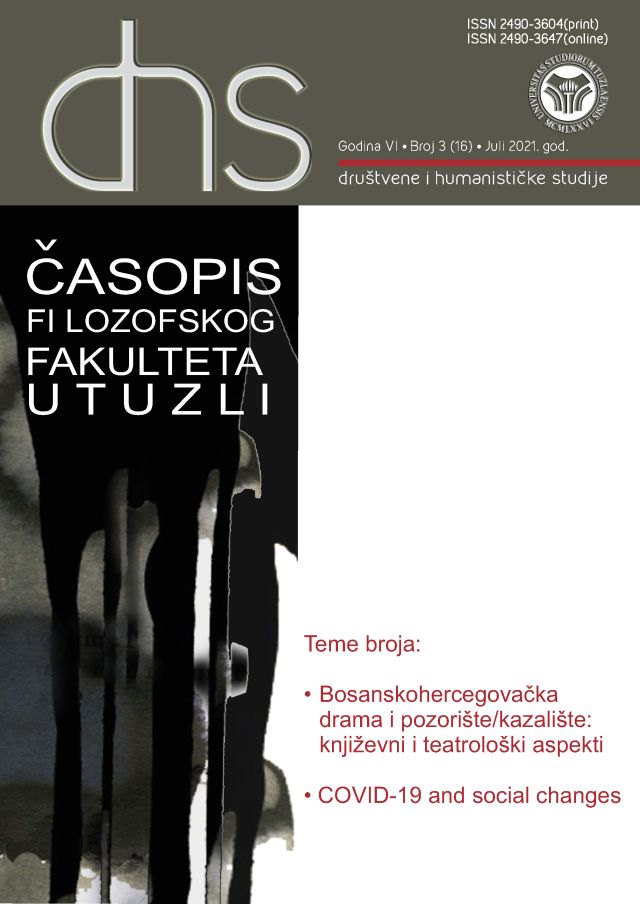Samoprocjena nastavničkih kompetencija o upotrebi informaciono-komunikacijskih tehnologija u nastavnom procesu
Self-assessment of Teacher Competencies On The Use of Information and Communication Technologies in the Teaching Process
Author(s): Selma Porobić, Senada Mujić, Edina Malkić, Maida Dedić, Ksenija Mujčević, Mahir Bečakčić, Tarik Hasanić, Enver Tursunović, Almedin RizvićSubject(s): Education, Psychology, Communication studies, ICT Information and Communications Technologies, Distance learning / e-learning
Published by: Filozofski fakultet Univerziteta u Tuzli
Keywords: information and communication technology (ICT); teacher; self-assessment; competence; education;
Summary/Abstract: The COVID-19 pandemic, or better known as the coronavirus pandemic, brought many challenges in education, and one of them was the transition to online teaching, that is. use of information and communication technologies in teaching. Information technology is a term that describes parts (hardware) and programs (software) that allow access to download, organize, manipulate and present information electronically, and communication technology (CT) is a term that describes telecommunications equipment that can send, receive information, search and access them. This research aimed to examine the subjective experience of teachers about personal competencies in the use of information and communication technology in teaching. The population of this research consists of primary school teachers in the area of Tuzla Canton, and the total sample consists of 138 respondents. An anonymous internet survey was used, which is distributed with the help of social networks “Facebook” and a Facebook group called “Prosvjeta TK”, which brings together educators from the Tuzla Canton area. In this paper, we assume that teachers assess their information and communication competencies as positive and they consider themselves competent in their use in the teaching process. It also explores aspects of teachers’ digital competencies as essential competencies for 21st-century education. The paper will provide insight into the personal perception of teachers regarding ICT competence, which is included in the fund of previous knowledge and theoretical knowledge. The results of this research could help understand and analyze further practices, decide on further steps to build teachers’ ICT competencies in and for the future of the school.
Journal: DHS-Društvene i humanističke studije: časopis Filozofskog fakulteta u Tuzli
- Issue Year: XVI/2021
- Issue No: 16
- Page Range: 505-520
- Page Count: 16
- Language: Bosnian

